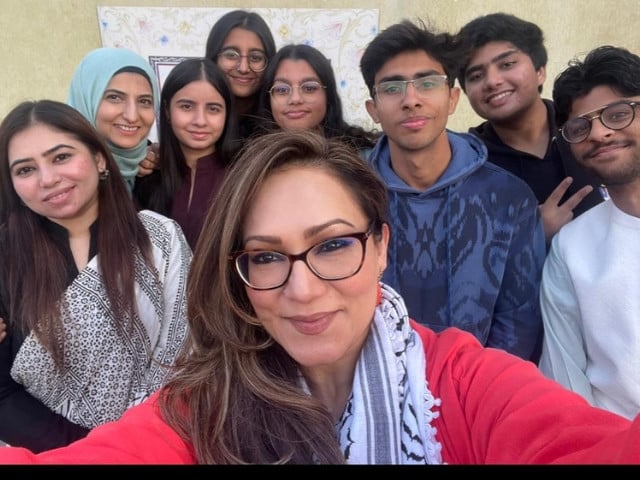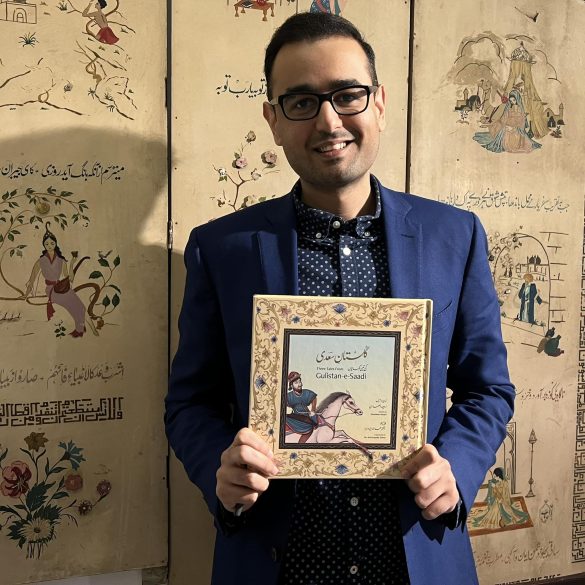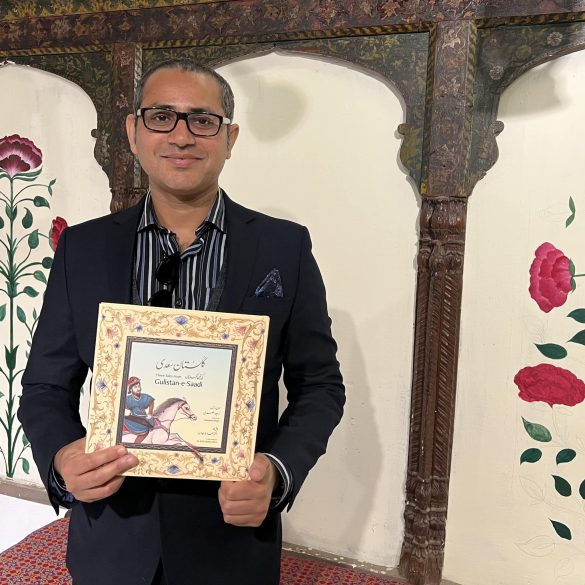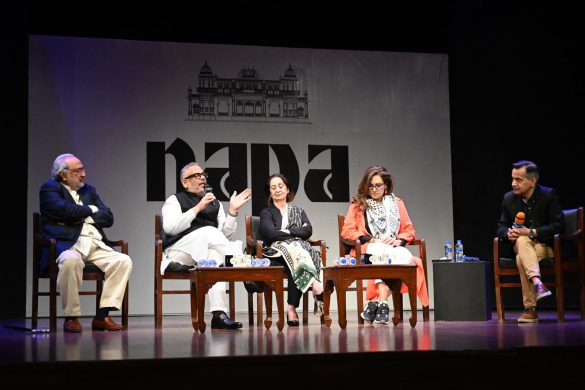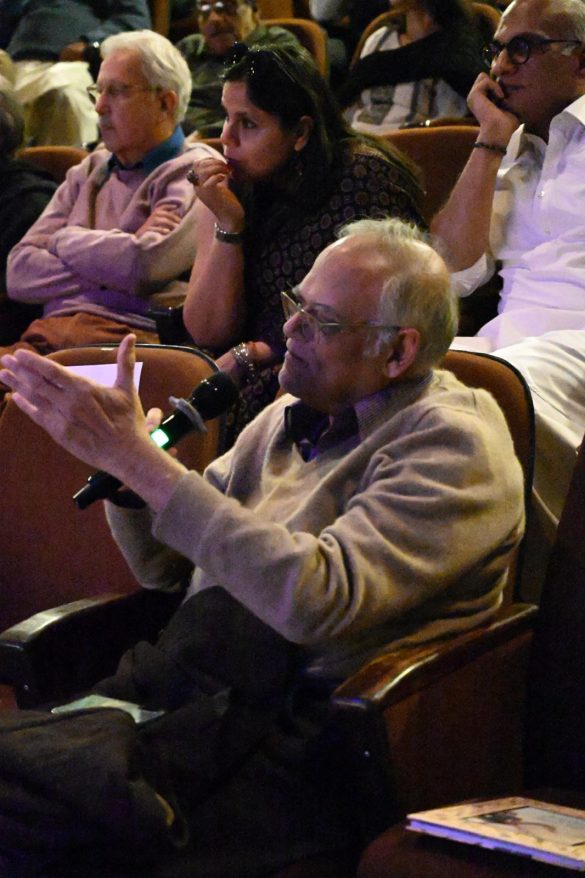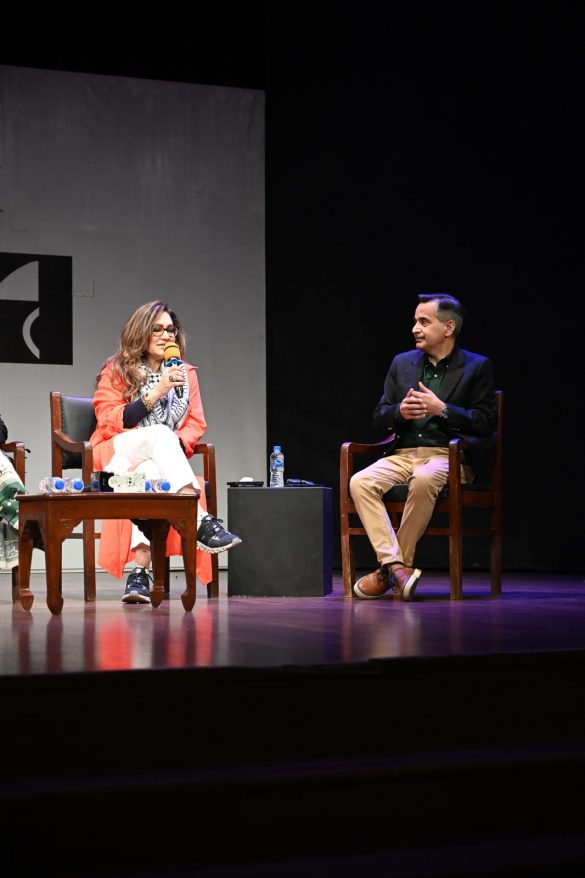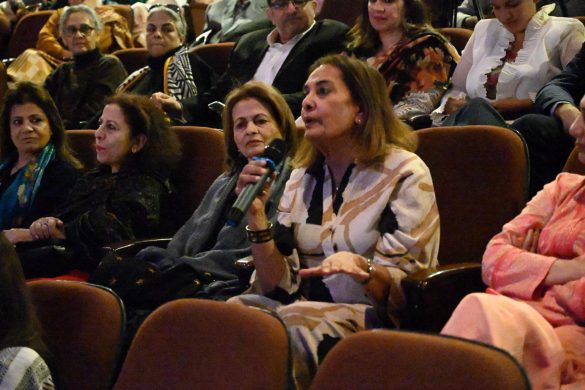A bilingual book “Three Tales From Gulistan-e-Saadi” was launched at the National Academy of Performing Arts-NAPA in collaboration with Joy of Urdu.
The beautiful coffee table book is the brainchild of Zarminae Ansari, the founder of Joy of Urdu, a volunteer-run organization committed to promoting Urdu through its international chapters, bilingual educational content on social media and in print, and now a bilingual publishing house.
The event kicked off with CEO NAPA Junaid Zuberi welcoming the guests and introducing Zarminae Ansari. He said NAPA had in the past held programs on Urdu literature. Its founder Zia Mohyeddin was so particular about Urdu diction that he would often correct the NAPA management on mispronunciations.
He also pointed out that being a national academy, NAPA was committed to promoting the national language. The Joy of Urdu was also such a forum that was working in the same direction as they were working on children of Urdu-speaking expats who were out of touch with Urdu.
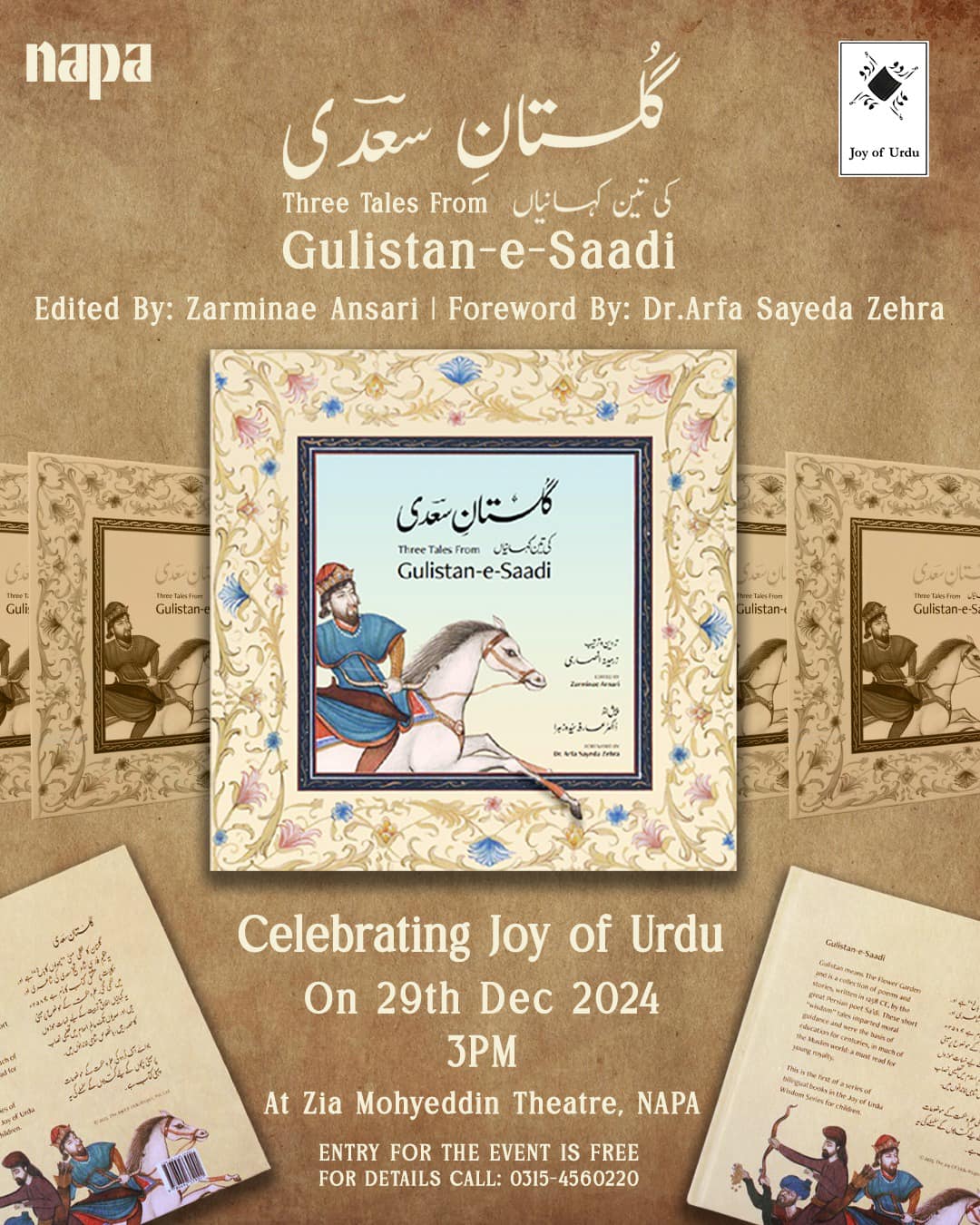
Zarminae Ansari spoke about her own experience as a mother which ignited the desire in her to start this organization. She said Joy of Urdu was a bilingual forum because the target was the youth who spoke mostly English though they came from an Urdu-speaking background. She thanked their Chief Patron and Advisor, Dr. Arfa Sayeda Zehra, for her mentorship and support. The book was for her son, and dedicated to Sabeen Mahmud, as the inscription in the book says, and she spoke about the initial encouragement by Sabeen who was her first cheerleader and encouraged her to follow her vision, despite her initial hesitation since Zarminae is an architect with a Masters from MIT. She was also thankful to Bari Mian Farangi Mahal for guiding her in her work and to the impressive names who constitute the Advisory Board for Joy of Urdu.
This was followed by a panel discussion moderated by Ali Habib. The panelists included Zarminae Ansari, Yasmeen Mozaffar, Junaid Zuberi, and Bari Mian.
In the discussion, Zarminae Ansari said the forum was initially meant for expat families, but later she realized that it was also needed inside Pakistan.
Yasmeen Mozaffar lamented the society that had taken away the children from Urdu. “People around the world translate foreign literature into their language to make them accessible to their folks, but we have to use English to make our youth reach out to our language,” she said.
Bari Mian said there was nothing wrong with being bilingual. He said his father always stressed the need to use the language that was the language of the person spoken to, even though he would hardly speak English. Bari Mian and his siblings, due to their English-medium schooling would speak in English amongst themselves but to the father, they would use Urdu, and to their mother, they would opt for the purajabi accent.
Zarminae Ansari acknowledged that the book was expensive, but pointed out that her organization did not receive any funding or grants for this project. All the work was done pro-bono, including the design by Rabila Kidwai, and expenses, such as the calligraphy, especially commissioned miniature paintings by Syed Shah Abdullah Alamee, and production costs were entirely borne by the members & patrons. She did agree that the book needed to be made accessible to school children. “This is our first book,” she said, “and it had to be done like this to show what is possible”.
After the panel discussion, Tashina Rashid Nur aka Aunty Tashi, Karachi’s popular storyteller, read one of the tales from the book.
Joy of Urdu Karachi Chapter Coordinator Mahwish Zaidi read out the poem written about this book “yeh kahaniyaan” by Zehra Nigah, one of Urdu’s greatest contemporary poets, and a supporter of Joy of Urdu, who with Dr. Arfa Sayeda Zehra had helped Zarminae launch the book at the Jashne Rekhta in early 2024 on the 10th anniversary of Joy of Urdu.
